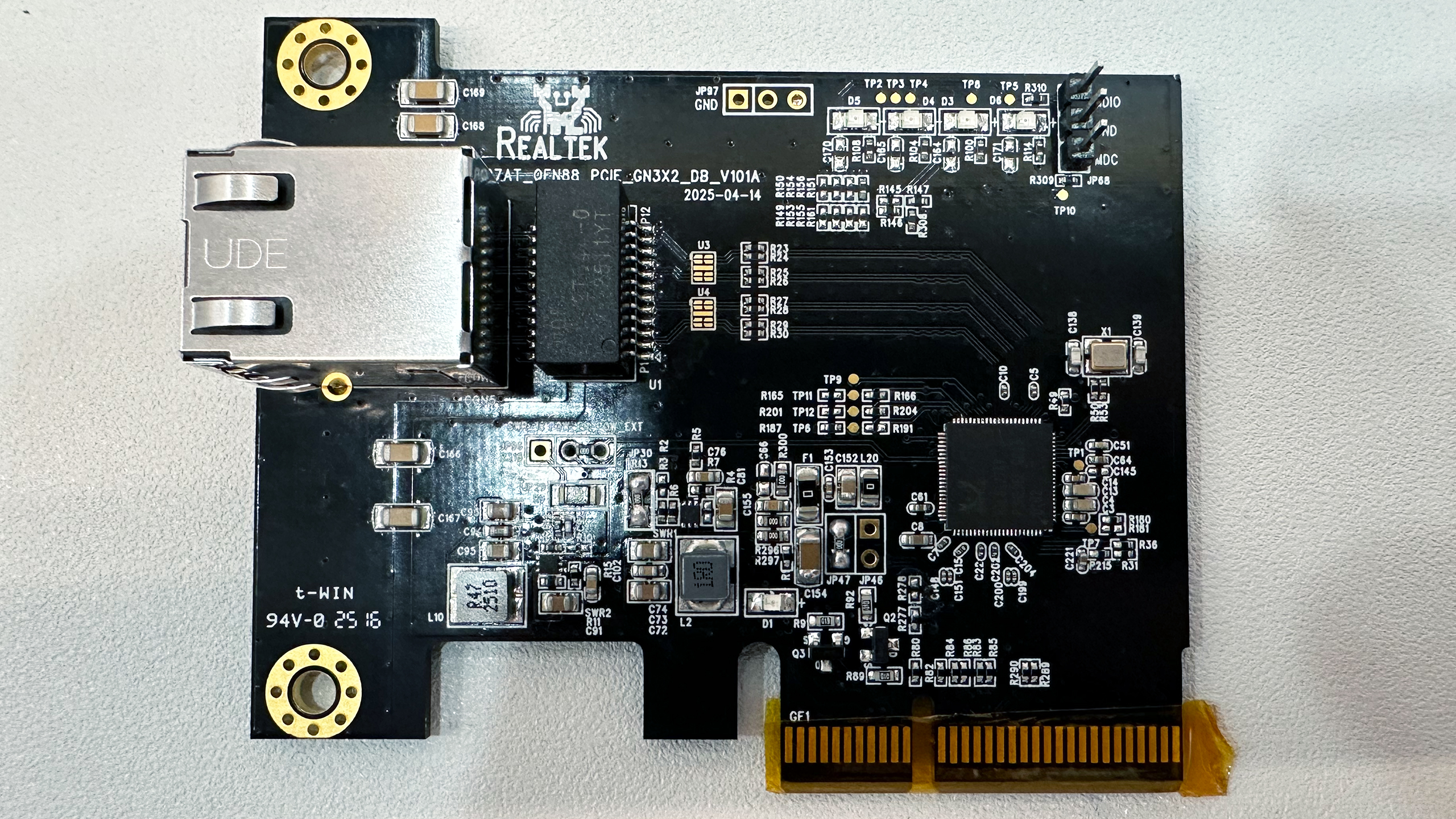30% of South Korean schools have adopted AI-powered digital textbooks since the country's education ministry began a full-scale rollout in March 2025
-
This post did not contain any content.

AI for the teacher: 30% of South Korean schools wield digital textbooks
JEJU, South Korea/TOKYO -- Digital textbooks that make use of artificial intelligence are being adopted throughout South Korea. The Education Ministry

Nikkei Asia (asia.nikkei.com)
I work in the data center industry—my company designs them.
Traditional IT server racks typically draw about 12 kW of power. Most of this power is converted into heat, so we must provide an equal amount of cooling. These servers must never experience a power failure or overheat, so we use massive generators, battery farms, and chilled water buffer tanks to ensure redundancy.
Now, with the rise of AI, many data centers are undergoing major overhauls. IT racks have gone from drawing 12–15 kW each to 40–100 kW. This represents a huge increase in both weight and power density. As a result, most cooling and electrical systems need to be completely redesigned. Much of the older equipment is being replaced with new infrastructure.
Even a simple Google search now uses up to 10 times more power than before, as AI has been integrated into their search function.
The environmental impact of AI is pretty devastating—I don't think many people are aware of this.
-
I work in the data center industry—my company designs them.
Traditional IT server racks typically draw about 12 kW of power. Most of this power is converted into heat, so we must provide an equal amount of cooling. These servers must never experience a power failure or overheat, so we use massive generators, battery farms, and chilled water buffer tanks to ensure redundancy.
Now, with the rise of AI, many data centers are undergoing major overhauls. IT racks have gone from drawing 12–15 kW each to 40–100 kW. This represents a huge increase in both weight and power density. As a result, most cooling and electrical systems need to be completely redesigned. Much of the older equipment is being replaced with new infrastructure.
Even a simple Google search now uses up to 10 times more power than before, as AI has been integrated into their search function.
The environmental impact of AI is pretty devastating—I don't think many people are aware of this.
Power consumption before and after AI searches is the same as power consumption for monetary transactions before and after Bitcoin and the likes.
Both technologies suck donkey balls and still haven't done remotely what they've promised and have made everything net worse.
-
Power consumption before and after AI searches is the same as power consumption for monetary transactions before and after Bitcoin and the likes.
Both technologies suck donkey balls and still haven't done remotely what they've promised and have made everything net worse.
AI didnt replace cryptocurrency
-
This post did not contain any content.

AI for the teacher: 30% of South Korean schools wield digital textbooks
JEJU, South Korea/TOKYO -- Digital textbooks that make use of artificial intelligence are being adopted throughout South Korea. The Education Ministry

Nikkei Asia (asia.nikkei.com)
I wouldn't mind if online textbooks had a button on the side that is just a looser search (like what Google was a few years ago).
It'd be handy if I could type in "gravity problem with the bunny" instead of having to either search for "bunny" and flip through all the results, or try to remember/guess the exact wording of the problem.
You probably could still call it AI too, since there's likely some small machine learning model involved in that search.
-
This post did not contain any content.

AI for the teacher: 30% of South Korean schools wield digital textbooks
JEJU, South Korea/TOKYO -- Digital textbooks that make use of artificial intelligence are being adopted throughout South Korea. The Education Ministry

Nikkei Asia (asia.nikkei.com)
I think the future's back in specialized devices. You give me a tablet that shows only textbooks, I read textbooks. You make it also access the internet, and I will immediately and exclusively use it for porn.
-
I think the future's back in specialized devices. You give me a tablet that shows only textbooks, I read textbooks. You make it also access the internet, and I will immediately and exclusively use it for porn.
The first thing I do with any new device I buy is run porn on it lol. It's the initiation ceremony for my gadgets
-
The first thing I do with any new device I buy is run porn on it lol. It's the initiation ceremony for my gadgets
I did that too, until things got weird with the new cat feeder
-
Maybe someone should let them know how often AI is wrong?
No, we must move fast and break things, then ask for forgiveness later on.
-
This post did not contain any content.

AI for the teacher: 30% of South Korean schools wield digital textbooks
JEJU, South Korea/TOKYO -- Digital textbooks that make use of artificial intelligence are being adopted throughout South Korea. The Education Ministry

Nikkei Asia (asia.nikkei.com)
I fear for the near future. Hell I fear for the present.
-
AI didnt replace cryptocurrency
Noone has claimed that.
-
I wouldn't mind if online textbooks had a button on the side that is just a looser search (like what Google was a few years ago).
It'd be handy if I could type in "gravity problem with the bunny" instead of having to either search for "bunny" and flip through all the results, or try to remember/guess the exact wording of the problem.
You probably could still call it AI too, since there's likely some small machine learning model involved in that search.
That's something I think AI could do really good for education. "I've been learning combinatorial theory - these are my notes - where would I look to understand how that relates to the Standard Model?"
-
I work in the data center industry—my company designs them.
Traditional IT server racks typically draw about 12 kW of power. Most of this power is converted into heat, so we must provide an equal amount of cooling. These servers must never experience a power failure or overheat, so we use massive generators, battery farms, and chilled water buffer tanks to ensure redundancy.
Now, with the rise of AI, many data centers are undergoing major overhauls. IT racks have gone from drawing 12–15 kW each to 40–100 kW. This represents a huge increase in both weight and power density. As a result, most cooling and electrical systems need to be completely redesigned. Much of the older equipment is being replaced with new infrastructure.
Even a simple Google search now uses up to 10 times more power than before, as AI has been integrated into their search function.
The environmental impact of AI is pretty devastating—I don't think many people are aware of this.
Wow, thank you for the insight. I guess this would be helped somewhat with some of the lighter models being designed, and used locally.
-
And what exactly are AI textbooks? Does AI generate a quiz? Or generate the facts? I feel there is quite some bandwidth there and the article doesn't say a lot.
This is what I want to know also. "AI textbooks" is a great clickbait/ragebait term, but could mean a great variety of things.
-
-
-
Bruce Lee, Jackie Chan and ‘A Better Tomorrow’: AI-Powered Kung Fu Film Plan Debuts in Shanghai
Technology 1
1
-
Your Brain on ChatGPT: Accumulation of Cognitive Debt when Using an AI Assistant for Essay Writing Task
Technology 1
1
-
-
-
-
Mozilla is Introducing 'Terms of Use' to Firefox | Also about to go into effect is an updated privacy notice
Technology 1
1


